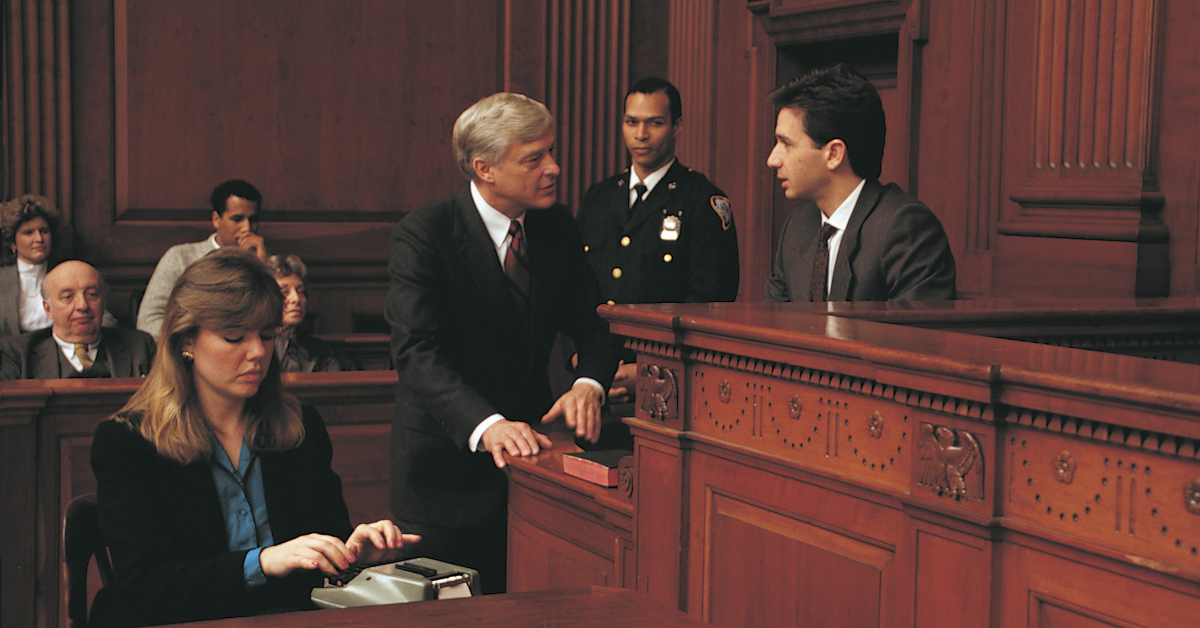What Is a Preliminary Hearing in a Criminal Case?
In a preliminary hearing, enough evidence must be presented for the judge to determine whether or not the defendant should stand trial. Evidence can include documents, witness statements, and physical evidence. The clerk magistrate will listen to all of the evidence presented by the prosecution and defense during the preliminary hearing.

What Happens at the Preliminary Hearing?
A preliminary hearing is considered a “trial before the trial” in which the District Attorney, Defense Attorney, and defendant discuss the case to determine whether it will go to trial, or if the defendant will plead guilty to charges.
Preliminary hearings occur after the arraignment, in which the judge presents the charges against the defendant. At the arraignment, the judge can also determine whether or not to set terms for the defendants release before the trial, such as a set bail.
Preliminary hearings begin with a Discovery phase. During the Discovery phase, evidence is presented that can be used against you including documents, videos, photos, witness statements, forensic test results, and physical evidence.
During the preliminary hearings, your attorney may begin negotiations before your case reaches a full trial. It is possible for your case to be dismissed at this stage if you come prepared with an experienced attorney who is ready to defend your case.
What Questions Does a Judge Ask During a Preliminary Hearing?
During the preliminary hearing, a judge is looking for detailed narratives of what happened. To be prepared for a preliminary hearing, you should consult with your attorney to see how to best answer questions that may come up.
Common questions that a judge may ask are used to provide them with a greater, detailed understanding of the situation that occurred. These questions could include:
- Who was the defendant with at the time of the incident?
- What happened leading up to the incident?
- When did the incident take place?
- Who was at fault for the incident?
- When was the incident reported?
Your attorney will guide you through questions that you may face. They will also assess evidence that may be presented against you to get a better understanding of how to defend your case.
Can Charges Be Dropped at a Preliminary Hearing?
To “win” a preliminary hearing, the judge must determine that the evidence presented against the defendant is insufficient or falls short of holding up in a trial. Hiring an experienced attorney as early as possible will give you a better chance at getting your charges dropped, since it will provide your attorney with enough time to go through your case and determine how to best proceed during the hearing.
Probable Cause vs. Preliminary
At a preliminary hearing, the judge determines whether there is probable cause that a crime was committed by the defendant, based on evidence that was presented during the hearing. A probable cause hearing is another name for a preliminary hearing in a criminal court case.
Another name for a preliminary hearing, or a probable cause hearing, is a clerk magistrate hearing. During this hearing, the clerk magistrate is the one determining whether there is probable cause to stand trial.
What Does a Clerk Magistrate Do?
During a preliminary hearing, the Clerk Magistrate’s primary role is to determine whether probable cause exists that would lead the defendant to face the criminal charges presented against them. The Clerk Magistrate may set bail during the arraignment.
To determine whether there is probable cause, a Clerk Magistrate will see all evidence presented against the defendant and listen to both sides of the case. Clerk Magistrates determine whether evidence is sufficient and whether the law allows the evidence presented to hold up in a trial.
The defendant and their attorney have the opportunity to be heard by the Clerk Magistrate during the preliminary hearing. This is only allowed when the charges are misdemeanor.
To remain impartial, Clerk Magistrates are unable to support political candidates, hold office or positions in political organizations, or enter business activities that would go against a defendant that appears in court or the court itself.
Disclaimer
The information contained in this blog is for general information purposes only. Bonville & Howard assumes no responsibility for errors or omissions in the contents of the blog.
In no event shall Bonville & Howard be liable for any special, direct, indirect, consequential, or incidental damages or any damages whatsoever, whether in an action of contract, negligence, or other tort, arising out of or in connection with the use of this blog or the contents of this blog. Bonville & Howard reserves the right to make additions, deletions, or modifications to the contents of this blog at any time without prior notice.
